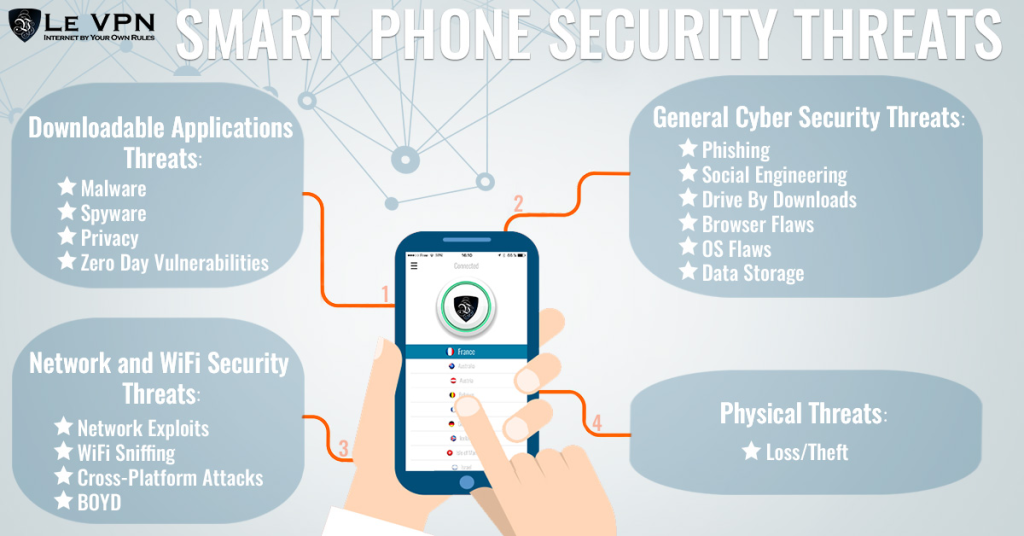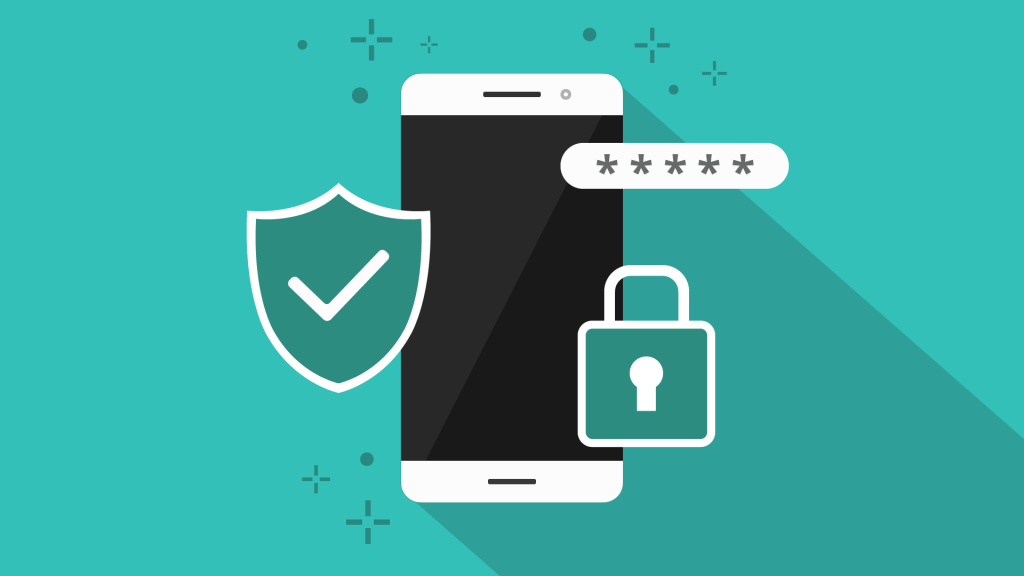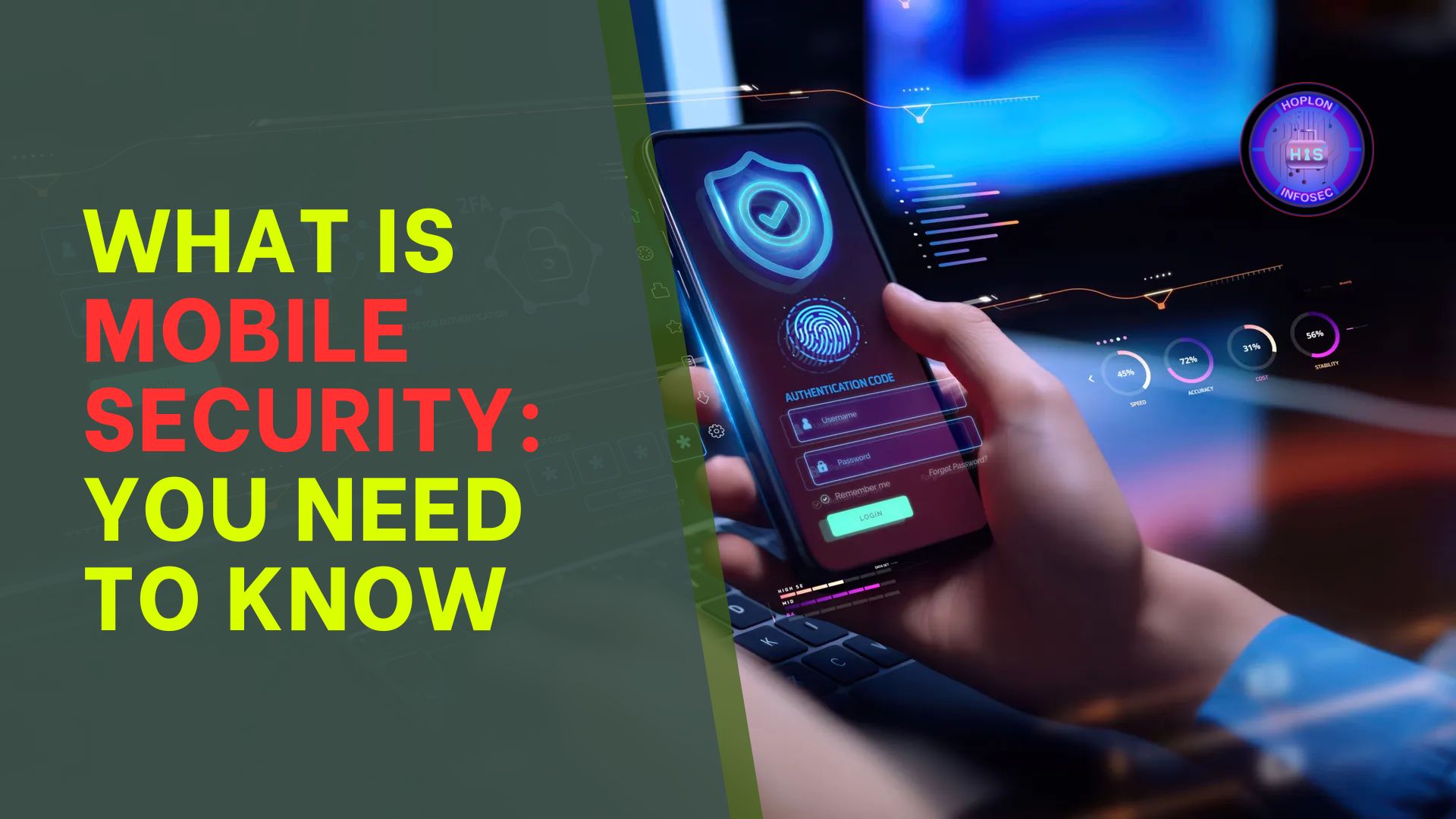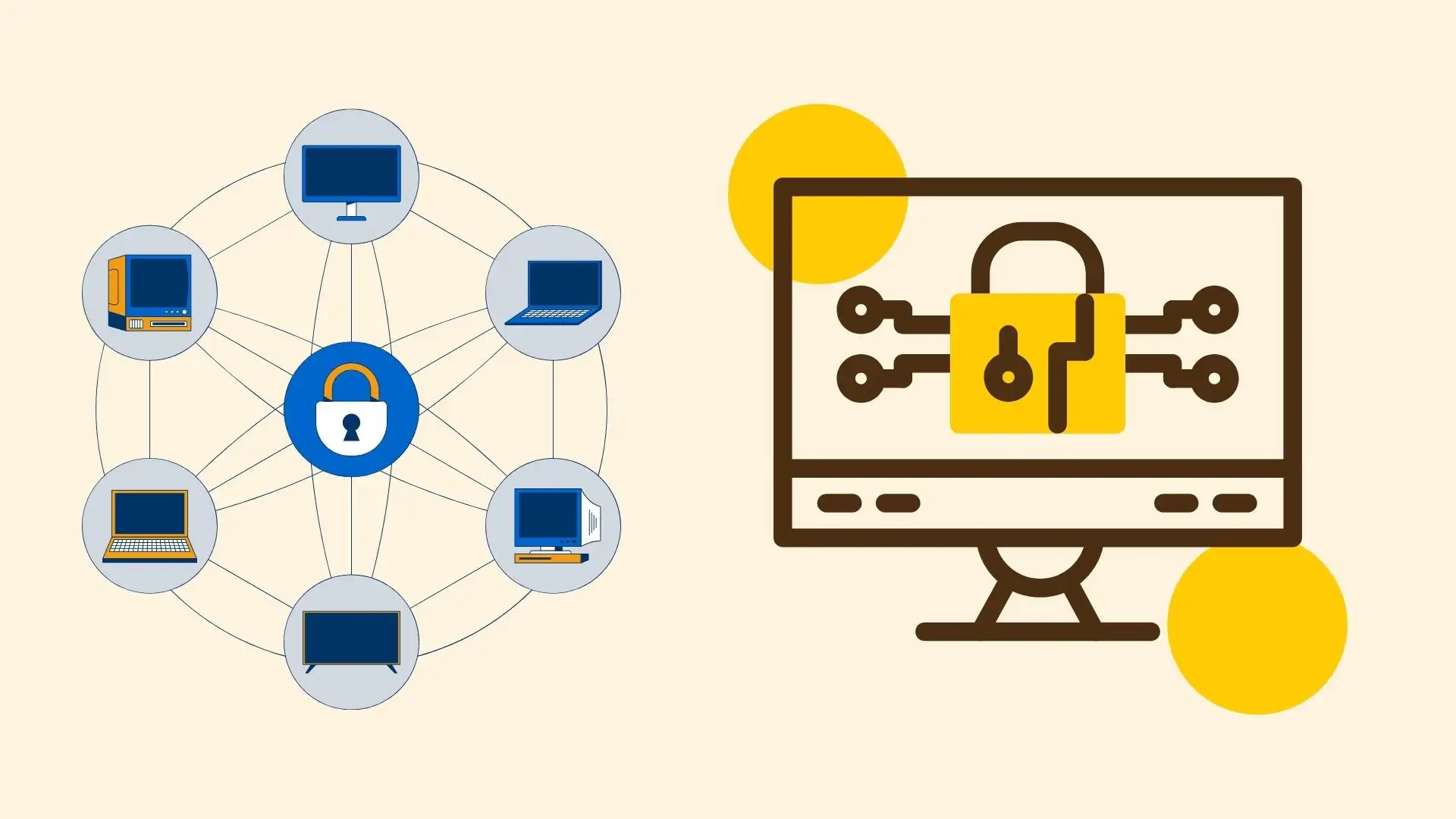In today’s hyper-connected world, mobile devices have become essential extensions of our daily lives. Whether you’re using your smartphone for banking, shopping, or social media, protecting your data is more crucial than ever. In this comprehensive guide, we delve into the world of mobile security, exploring what it is, why it matters, and how you can safeguard your digital life. This SEO-friendly blog will walk you through the essential aspects of mobile security, the benefits it offers, the threats you might encounter, and actionable steps to secure your mobile devices.
What Is Mobile Security?
Mobile security refers to the practices and technologies used to safeguard mobile devices—such as smartphones, tablets, and wearable gadgets—from threats and vulnerabilities. It encompasses a wide range of protective measures, from software applications and firewalls to encryption protocols and secure network connections. Mobile security is not just about preventing unauthorized access; it also involves protecting sensitive data stored on your device, ensuring the integrity of mobile applications, and securing communications over mobile networks.
Over the past decade, as mobile devices have become indispensable for both personal and professional use, the significance of mobile security has grown. Modern devices are no longer just phones; they are personal computers in your pocket, hosting a treasure trove of personal information. This transformation has made mobile security a fundamental component of overall cybersecurity strategies.
Why Is Mobile Security Important?

The importance of mobile security cannot be overstated. With an increasing amount of sensitive data stored on mobile devices, the risk of cyberattacks has grown exponentially. Hackers and cybercriminals are constantly on the lookout for vulnerabilities in mobile operating systems and applications. When exploited, these vulnerabilities can lead to devastating consequences, including identity theft, financial loss, and unauthorized access to confidential business information.
Mobile devices often serve as gateways to larger networks. A compromised smartphone can provide attackers with access to corporate systems, potentially leading to a broader security breach. The importance of mobile security is further amplified by the fact that many mobile devices are used on the go, connecting to multiple networks, including public Wi-Fi hotspots that are notoriously insecure. These risks underscore the need for robust mobile security measures that not only protect personal data but also secure broader network infrastructures.
Why You Need Mobile Security
Every mobile device carries a unique risk profile. Unlike desktops and laptops, which are often used in controlled environments, mobile devices accompany us everywhere. This constant mobility exposes them to a variety of threats—from malicious software and phishing attacks to physical theft and loss. Mobile security is essential for several key reasons:
First, mobile devices store a significant amount of personal information. This includes contacts, emails, financial details, photographs, and even location data. A single security breach could lead to a cascade of problems, including identity theft and financial fraud. Secondly, the proliferation of mobile applications means that each new app is a potential entry point for cybercriminals. Many apps require access to sensitive information, and if they are not properly secured, they can become conduits for malware or data breaches.
Additionally, mobile devices are an increasingly attractive target for attackers due to their versatility and the sheer volume of data they process. This is why understanding the potential vulnerabilities and adopting best practices for mobile security is critical for anyone who relies on mobile technology.
Mobile Security Benefits
Investing in mobile security offers numerous benefits, both for individual users and organizations. When you implement strong security measures on your mobile devices, you can enjoy the following advantages:
- Enhanced Data Protection: Mobile security solutions help safeguard your personal and professional data from unauthorized access. This is especially important given that mobile devices often store sensitive information that could be misused if it falls into the wrong hands.
- Peace of Mind: With robust mobile security in place, you can use your device without constantly worrying about potential threats. Knowing that your data is secure allows you to focus on your tasks, whether it’s personal communication or critical business operations.
- Compliance and Trust: For businesses, securing mobile devices is not only about protecting data but also about ensuring compliance with industry regulations. Customers and partners are more likely to trust a company that takes proactive steps to secure its data, which can translate into enhanced brand reputation and competitive advantage.
Protection Against Malware: Mobile security measures such as antivirus software and regular system updates are effective at preventing malware infections. This is crucial as malware can lead to data loss, system slowdowns, and other disruptions that can significantly affect productivity.
Cost Savings: Preventing security breaches saves money in the long run. Data breaches can lead to costly recovery efforts, legal liabilities, and damage to a company’s reputation. By investing in mobile security, you reduce the likelihood of expensive incidents and protect your financial resources.
Mobile Security Threats

Despite the advancements in security technologies, mobile devices are still vulnerable to a wide array of threats. Understanding these risks is the first step in building an effective defense strategy.
One of the most common threats is malware. Mobile malware can disguise itself as legitimate software, tricking users into downloading harmful applications. Once installed, malware can steal data, send unauthorized messages, or even take control of the device. Phishing attacks are another prevalent threat. Cybercriminals often use SMS, email, or social media messages to lure users into providing sensitive information or clicking on malicious links.
Another significant threat is the exploitation of unsecured Wi-Fi networks. Public hotspots are particularly risky, as they can be breeding grounds for hackers looking to intercept data transmitted over the network. Additionally, the risk of physical loss or theft of mobile devices adds another layer of vulnerability. When a device is lost or stolen, sensitive data stored on the device is at risk of falling into the wrong hands if it is not adequately protected.
Beyond these, there are sophisticated cyberattacks that target mobile operating systems. Attackers can exploit vulnerabilities in the operating system or outdated software to gain unauthorized access to the device. In recent years, ransomware attacks have also made their way to mobile platforms, encrypting users’ data and demanding payment for its release. The constant evolution of these threats means that mobile security strategies must be dynamic and adaptable to new challenges.
How to Secure Mobile Devices

Securing your mobile device is a multifaceted task that requires a combination of technological tools and smart habits. Here are some effective strategies to ensure that your mobile device remains protected:
Keep Your Operating System and Apps Updated
Regular updates are one of the most effective defenses against security vulnerabilities. Operating system updates often include patches for known security flaws, while app updates can address potential exploits in the software. Make it a habit to install updates as soon as they become available, ensuring that your device is always protected against the latest threats.
Use Strong Passwords and Biometric Authentication
Password protection remains a cornerstone of mobile security. Use strong, unique passwords for your device and all installed apps. Additionally, enables biometric authentication, such as fingerprint scanning or facial recognition, which provides an extra layer of security. These measures can significantly reduce the risk of unauthorized access, even if someone gains physical possession of your device.
Install a Reputable Mobile Security App
There are many mobile security applications available that offer features like antivirus protection, malware scanning, and real-time threat detection. Choose a reputable app that is regularly updated and has positive reviews from trusted sources. These apps can provide comprehensive protection by continuously monitoring your device for suspicious activity and alerting you to potential threats.
Encrypt Your Data
Encryption is a powerful tool for protecting your sensitive information. By encrypting your data, you ensure that even if your device is compromised, the information stored on it remains unreadable without the proper decryption key. Many modern mobile devices come with built-in encryption features, so be sure to enable them to add an extra layer of security.
Be Cautious with Public Wi-Fi
Public Wi-Fi networks are notoriously insecure and can expose your device to various cyber threats. When accessing public Wi-Fi, avoid performing sensitive transactions like online banking or accessing confidential emails. Consider using a virtual private network (VPN) to create a secure connection that encrypts your internet traffic, protecting your data from prying eyes.
Backup Your Data Regularly
Regular backups are a crucial part of any mobile security strategy. By backing up your data, you can quickly recover your information in the event of a security breach or device failure. Use cloud-based services or local storage options to keep your backups up to date. This precaution ensures that even if your device is compromised, your data remains secure and accessible.
Be Aware of App Permissions
When installing new apps, take the time to review the permissions they request. Some apps may ask for access to sensitive data or device functions that are not necessary for their operation. Limit the permissions granted to only those that are essential, and avoid installing apps from untrusted sources. This practice minimizes the risk of granting malicious apps the access they need to exploit your device.
Educate Yourself on Mobile Security Best Practices
Finally, staying informed about the latest trends in mobile security is one of the best defenses you can have. Cyber threats are constantly evolving, and being aware of new vulnerabilities and protection strategies can help you stay one step ahead of potential attackers. Follow reputable security blogs, subscribe to industry newsletters, and consider participating in online forums where experts share insights on emerging mobile security issues.
The Future of Mobile Security

The rapid evolution of mobile technology means that mobile security will continue to be a dynamic and challenging field. As devices become more powerful and interconnected, the potential attack surface for cybercriminals expands. However, this evolution also brings new opportunities for enhanced security measures.
Emerging technologies such as artificial intelligence and machine learning are beginning to play a significant role in mobile security. These technologies enable the development of advanced threat detection systems that can analyze patterns of behavior and identify potential security breaches before they occur. Additionally, innovations in biometric authentication and encryption methods promise to strengthen the defenses of mobile devices further further.
The future of mobile security will likely involve a combination of advanced technological solutions and increased user awareness. As mobile devices continue to integrate more deeply into our lives, both individuals and organizations must prioritize mobile security to safeguard sensitive data and maintain trust in digital communications.
Conclusion
Mobile security is no longer a luxury—it’s a necessity. With the vast amount of personal and professional data stored on our mobile devices, the threat of cyberattacks is a reality that cannot be ignored. From understanding the fundamentals of mobile security to recognizing the various threats and implementing robust security measures, every user must take proactive steps to protect their digital life.
This guide has outlined the key aspects of mobile security: what it is, why it is important, the benefits it offers, the prevalent threats, and actionable strategies to secure your mobile devices. By following these best practices—keeping your software updated, using strong authentication methods, installing reputable security apps, encrypting your data, and practicing safe internet habits—you can significantly reduce your vulnerability to cyberattacks.
Remember, mobile security is an ongoing process that requires constant vigilance. As technology evolves, so do the tactics of cybercriminals. Stay informed about the latest security trends and be ready to adapt your security measures as needed. Investing time and effort into securing your mobile devices not only protects your data but also ensures that you can enjoy the benefits of modern technology with peace of mind.
Embrace mobile security today, and take the proactive steps necessary to secure your digital world. The future is mobile, and with the right security measures in place, you can confidently navigate the digital landscape, knowing that your personal and professional information is well-protected.




